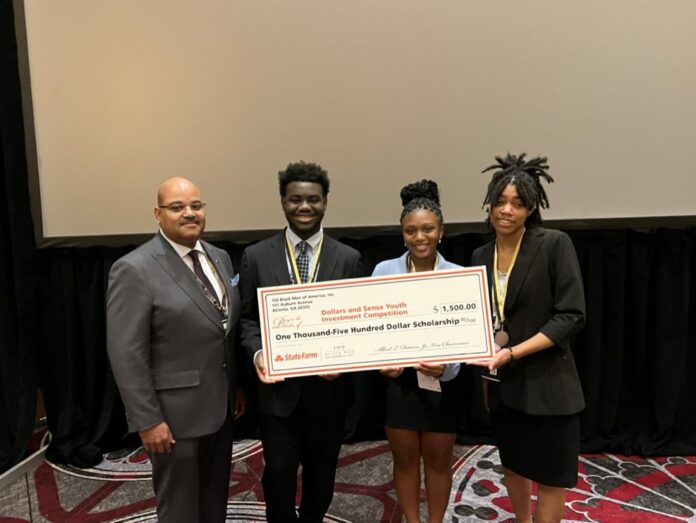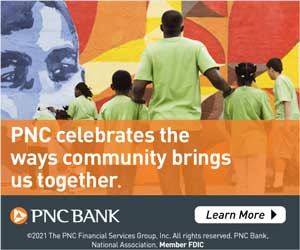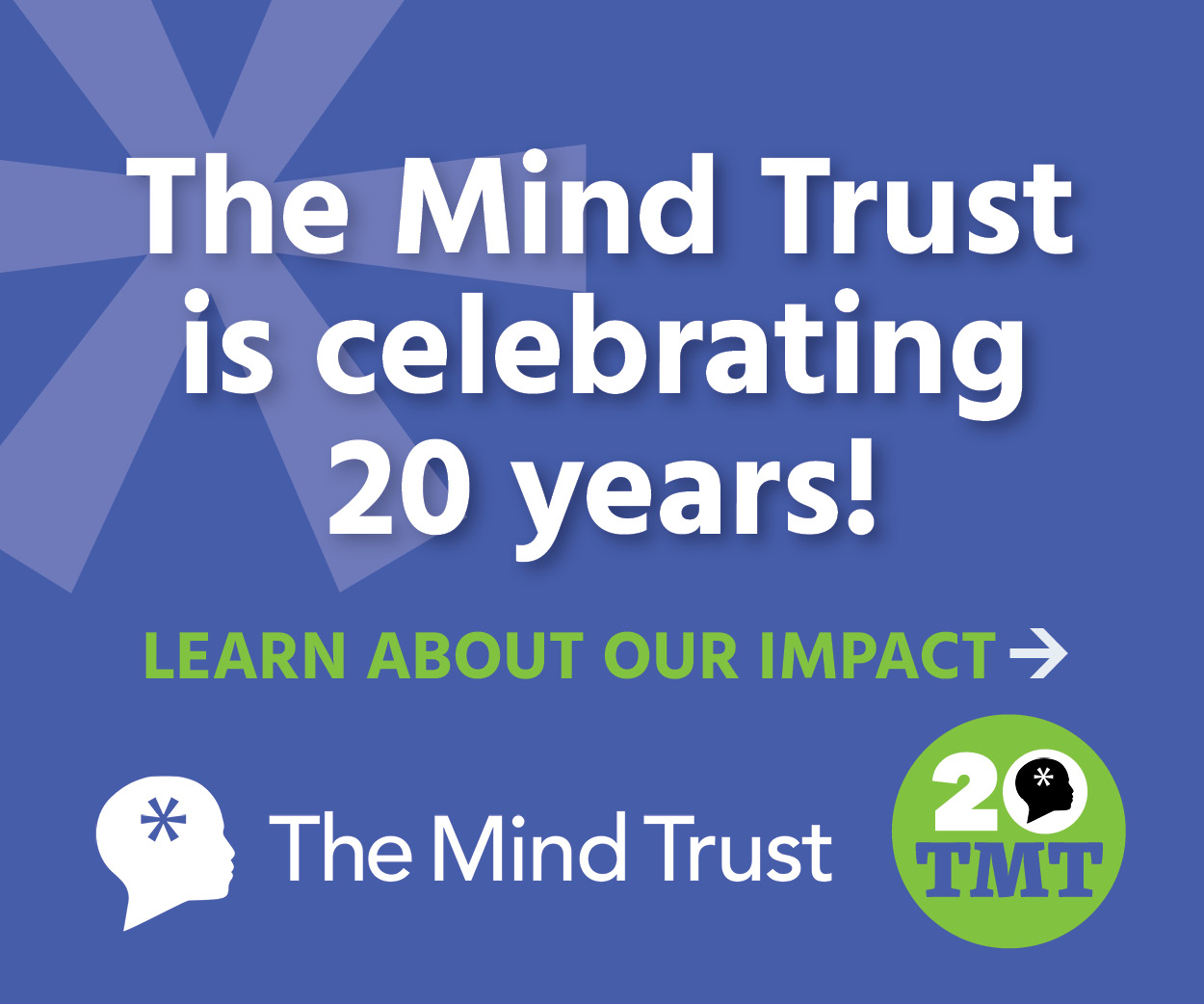Financial literacy is low among many U.S. adults. Despite the substantial economic impact African Americans have in the United States, their financial well-being falls behind the national average.
The P-Fin Index is an annual survey developed by the TIAA Institute and the Global Financial Literacy Excellence Center to measure financial literacy.
On average, African American adults answered 37% of the P-Fin Index questions correctly; only 28% answered over one-half of index questions correctly, with 5% answering over 75% correctly.
Financial literacy: KeyBank
“As an associate relationship manager, I am part of a dedicated team that designs and implements comprehensive wealth strategies to build, maintain and protect the wealth of our clients in any market environment,” said Rebecca Lomax with KeyBank.
“Our team delivers financial planning, investment, fiduciary, banking and credit insurance and business solutions tailored to meet the specific goals and needs of our clients.”
Since 2006, KeyBank has offered employee resource groups, known as Key Business Impact and Networking Groups (KBING).
The African Heritage KBING is focused on creating an inclusive and stronger workplace for the bank’s Black employees. It plays an important role in KeyBank’s diversity, equity and inclusion journey, with its members serving as ambassadors for DEI practices throughout the company and in their communities.
“When I purchased my first car, a friend who worked in the banking industry assisted me with the loan. She walked me through the entire contract of the loan line by line, explaining the legal and financial jargon,” said Lomax.
“The more I understood how my car loan worked, the more I understood how to build my credit. This is where my fascination with credit began.”
Financial freedom strategies
Lomax started to implement the credit strategies she learned and applied these to other areas of her personal finances. She watched her credit score rise, and after obtaining a graduate degree in management, she began her career in banking.
She began to coach individuals and small business clients at KeyBank after becoming passionate about using credit and lending as tools to help her clients progress in their financial journeys.
Through her coaching, Lomax found that many of her clients were having problems managing cash flow.
Financial planning and budgeting are critical, and Lomax said it is an exciting puzzle she enjoys working on.
“Most of the public understands that we should pay down debt and build an emergency fund. However, when we consider building generational wealth, we must first change our mindset and how we view wealth,” said Lomax.
“Building generational wealth is as much about setting a strong example as it is about making the right financial decisions. You can model the building blocks of healthy personal finances to your family, which includes the following best practices.”
She said parents should involve their children in financial conversations so they understand financial basics from a young age. This may be harder to do when people do not understand financial basics.
100 Black Men of America financial literacy program
One program in Indianapolis is making sure they teach financial literacy to high school students to combat this issue.
Dollars & $ense is a 100 Black Men of America, Inc. program that the local Indianapolis chapter in partnership with the University of Indianapolis has offered for the past 20 years.
The 15-week course covers various topics on financial literacy, with the goal of introducing Indiana students to the field of finance and encouraging them to pursue higher education.
“A key objective of the program is to introduce high school students to the field of finance through a weekly financial literacy education program. Another objective is to encourage students to pursue higher education at a college or university,” said Financial Literacy program Chair Jeffrey Woodard.
Students can receive scholarships based on their local competition scores, quiz scores, level of classroom participation and attendance. Scholarship amounts, payable to any accredited higher education institution upon proof of enrollment, are subject to available funds and the number of participating students but have ranged from $250 to $3,000 over recent years.
“The ultimate goal of our program is to provide students with the foundational knowledge and skills to develop so that they can build generational wealth within their lifetimes,” said Woodard.
Three students are selected each year to represent the Indianapolis chapter in the 100 Black Men of America’s National Literacy Competition.
Over 250 local students have successfully completed the Dollars & $ense Financial Literacy program, and the local chapter of 100 Black Men has won five national competitions. The local organization completed its 22nd cohort of the program Feb. 24, 2024
Financial literacy starts at home
Lomax described ways parents can involve their children in financial literacy.
“Consider giving them an allowance and discuss how they plan to spend it. Later, let them invest a small amount in their favorite video game company or cellphone manufacturer and track wins and losses together,” said Lomax.
“The goal is to expose your children to the world of finances as early as possible so that they start building healthy money management habits young.”
Even if you may not know all that financial literacy entails, Lomax said starting with these basics can help:
Prioritize savings
It is not how much you make but how much you keep. Living within your means and having a healthy emergency fund are two of the best ways to avoid unnecessary, high-interest credit card balances.
Build an emergency fund
One of the most important tools for building generational wealth is making sure that you have financial security in case of an emergency or loss of income.
Not having an emergency fund can lead people into high-cost debt or cause them to cash out retirement accounts, which comes with penalties.
Create and preserve assets
The best way to do this is to work with an advisor to build a financial plan and invest in the markets and education.
Create a budget
Creating a budget allows you to save money each month. Make lifestyle choices that help fuel your financial goals and invest in your retirement as early as possible to give it time to grow.
Plan for emergencies, setting aside money for unexpected events, and make sure you have a will and power of attorney.
“The more you plan, the more prepared you will be. Life is unpredictable, but if we can think ahead and plan for the quality of life we desire, then we will have a greater peace of mind,” said Lomax.
Even if you are not a parent yet and are in your 20s or 30s, planning ahead can benefit you and your financial future in the long run.
It is also never too late to start looking at your financial situation and make a change.
“Financial freedom is not a given; it is learned, planned for and implemented over time. After meeting with your advisors, set up a family meeting; discuss the principles you implemented to grow your wealth,” said Lomax.
“Share with your children and grandchildren what your values are. Share with them the financial mistakes you made or what you would have done differently. These conversations will help them manage and create financial freedom.”
This minority business highlight was composed by Jade Jackson at the Indianapolis Recorder, who can be reached at (317) 762-7853 or via email at JadeJ@IndyRecorder.com.
If you would like your business highlighted in the Indianapolis Minority Business Magazine, click here!











